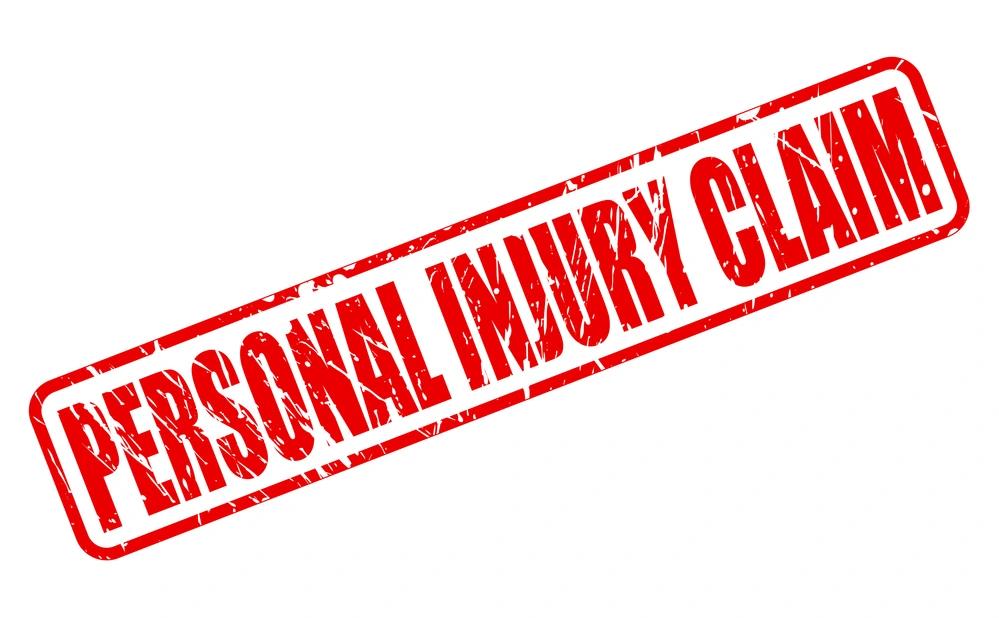If you are bringing a personal injury lawsuit here in Casper, Wyoming, it’s very important to have an experienced personal injury attorney on your side. That’s because there are several defenses that the liable party may try to use to get out from under their responsibility to make you “whole” again following your injury. Your lawyer will be familiar with all of them and how to counter them.
From a Casper, Wyoming Personal Injury Attorney: Common Defenses in Personal Injury Claims
What You’re Trying to Prove
For your claim to be successful, you must prove four separate elements, and the defense may try to attack one or more of these elements.
1. Duty of Care
First, you must show that the liable party had a duty of care towards you: in other words, they were legally expected to behave towards you in a certain manner. For example, all drivers on the road have a duty of care to other drivers to follow the rules of the road and to not drive impaired. The owner of a store has a duty of care towards everyone who visits to ensure that known hazards are fixed or that proper warnings are put up so that visitors can avoid them.
2. Breach of Duty
Once you have proven a duty of care, you must next prove that there was a breach of this duty. For example, you will need to be able to prove that a driver was breaking the law or was driving impaired or that a store owner either knew about the hazard or reasonably should have been expected to know about it.
3. Causation
Once you have proven a breach of duty, the next step is to prove that the breach was the cause of your injuries. It’s not enough for there to have been a breach of duty. It must be true that, but for this breach, you would not have been injured.
4. Damages
Finally, you must connect your injuries and damages to the accident in question. In other words, you have to be able to show that the damages and losses you are seeking recompense for were suffered in the accident that was caused by the other party’s breach of duty of care.
Defense Challenges
No Duty of Care or No Breach of Duty
The defense may try to claim that they had no duty of care towards you or that they did not breach this duty. One of the common defenses here is known as “assumption of risk,” which basically argues that the injured person willfully took part in an activity that they knew or should have known was dangerous. For this defense to work, though, it must be clear that the assumed risk related specifically to the activity.
For example, say you get injured playing a pickup game of ball at a local gym because you tripped over another player. This would probably count as an assumed risk, as tripping in a ball game is a known and expected risk in any kind of active physical game. However, if you tripped in a hole in the floor which should not have been there, and if it can be shown that the gym knew about this or should have known and did not warn you, the “assumption of risk” would not apply. No one should expect to be injured by falling in a hole when playing a ball game.
Something Else Caused Your Injuries
This defense challenges causation. In other words, the other party is not saying that they did not have a breach of duty. They are not even saying that they did not violate this duty or that their violation didn’t cause an accident. But what they are saying is that this accident was not the cause of your injuries.
They may attempt to argue that you had a pre-existing condition that you are trying to claim was a result of the accident or that you were injured after the accident and trying to blame them. The best way to avoid this kind of defense is to make sure you go for medical care as soon as possible after any accident. Any delay here gives the other side ammunition to claim there is a disconnect between your injuries and the accident.
Comparative Negligence
Wyoming has a comparative negligence rule for personal injury lawsuits. This rule states that if someone is partially at fault for their own injuries, while they can still claim compensation, their compensation will be reduced by the same percentage as their responsibility for the accident. So, for example, if you are considered to be 20% responsible for an accident, and your total damages equal $70,000, you would only come away with $56,000.
As you can imagine, the other party will be interested in putting on you every bit of responsibility they possibly can. Even getting you one percent more responsible in the above case would save them $700! And if they can get you to be considered 51% or more responsible for the accident, then they don’t have to pay anything at all (called the “51% bar rule”). This is just one reason it’s so important to work with an experienced personal injury attorney. Your attorney knows all the tricks in the book and will be on the lookout for attempts to blame you or to put more liability on you than you deserve.
Statute of Limitations
Another common defense is to argue that the statute of limitations has expired and the claim is no longer valid. In Wyoming, you have four years for most personal injury cases. If you don’t bring the claim within four years, you will generally not be able to bring any claim at all, no matter how strong your case.
Exceptions
If you were injured by someone deliberately, such as during an assault, you have only one year to bring a civil action against them. For medical malpractice, you have just two years. If you are injured by a Wyoming state government entity, you have one year to bring a lawsuit and two years to bring a general claim.
Also, if a person who has been injured as a minor or is legally disabled, or if the defendant is out of the state, the four-year time limit can sometimes be lengthened. In some cases, there is also an exception where the clock on the statute of limitations does not start to count down until the time that you discover the injury (or should reasonably be expected to have discovered it) rather than at the actual time of injury. However, you should never assume that your claim is an exception. Always talk to an attorney as soon as possible to make sure the other side cannot bring this defense and bar your claim.
If you have been injured by someone else’s negligence, don’t try to go up against insurance companies on your own to get the damages you are owed. Statistics show that those who work with an experienced personal injury lawyer almost always come away with higher settlements than those who do not, even after legal fees are considered. For a consultation on your case, contact us the Ochs Law Firm in Casper, Cheyenne, Jackson, Larmie, Cody, Gillette, or Idaho Falls today.







